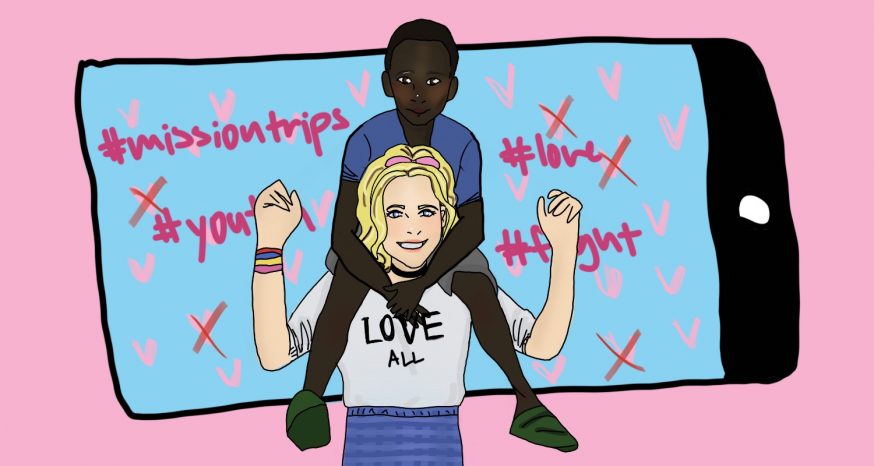Mission trips may hurt more than they help
 Nomin Ganbold | Conant Crier
Nomin Ganbold | Conant Crier Many students are planning out summer vacations all over the globe. Some decide to take mission trips, which are volunteer trips that are usually for a short time. They can make volunteers become more selfless and culturally aware, and they are seen on Instagram as “once in a lifetime” experiences. However, the harsh reality of many mission trips is that they are more harmful than helpful.
These trips often benefit the visitor rather than the recipient of the provided “aid.” For example, religion plays a big role in many mission trips. However, religious endeavors may not be a necessity for those in extreme poverty. This is not to say going on religious mission trips are always harmful. Church groups can be helpful if volunteer work is being done. Some of those in poverty find comfort having spirituality through hard times. However, religion starts to become secondary when lacking basic necessities such as food and shelter.
Short-term mission trips are also problematic because there is little immersion in culture. Solutions from first world countries aren’t always a solution for others. Volunteers need to change their perspective to look at these communities as asset-based. This outlook creates respect for these communities rather than pity while also providing more sustainable resources for those in impoverished communities.
Another issue is the trauma of children in these situations. In many cases, volunteers are offered opportunities at orphanages. At first glance these trips seem helpful, however these emotional bonds are harmful to their mental health. In an article written by ethicalmissionstrips.org, “This cycle of attachment and abandonment repeats with every team or volunteer that comes along, and the experience can exacerbate existing attachment disorders and expose each child to repeated patterns of emotional and psychological harm.” These children see someone who cares for them that then just leaves. They deserve loving relationships that don’t end every two weeks.
Furthermore, many volunteers take photos with these children and post them without thinking twice about it. Many children come from households of abuse and are put into orphanages or foster care. Putting their identity online can put them at risk. So, how can we serve others with these issues in mind? There’s plenty of ways.
Instead of spending that money on a short-term mission trip, donate your money. Plenty of organizations spend their time year-round working in countries to understand the needs of the communities they’re in. They need funding which you can contribute to, while still helping others.
If you still feel like you want to go to the communities, clear your schedule and take a longer mission trip. You can take more time to immerse yourself in the culture and understand their challenges. A six-month trip is more time and effort, but it also shows how committed you are to humanitarian work. If you can’t volunteer, be a tourist. Buying a few handmade souvenirs can feed families in impoverished countries for months.
As you plan out your summer, keep in mind this information on mission trips. The first step in making a difference is becoming better educated on how your volunteer work can affect those around you.

A very intriguing perspective that most people may not consider. I believe you are accurate in the focus needs to be on the children and not just doing something to make ourselves feel better. It would be interesting to find out on average how much does someone spend to go on a mission trip vs. the benefit to the child.